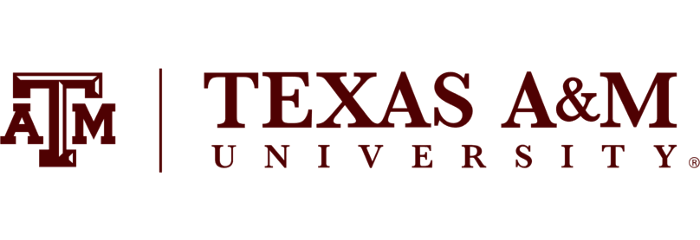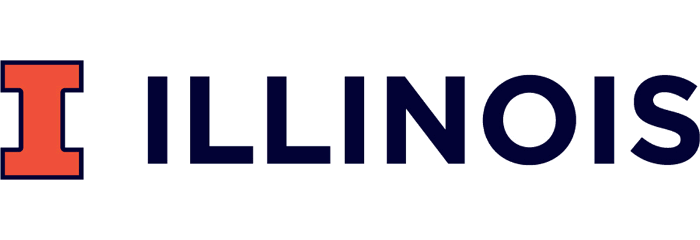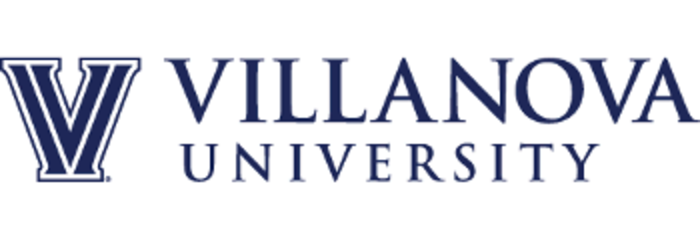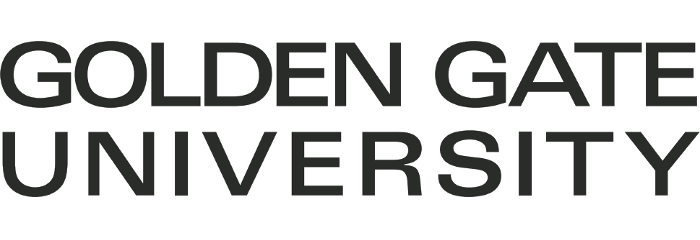2023 Best Online Human Resources Master's Degrees
ON THIS PAGE
Overview How to Choose Specializations FAQsAn online master's degree in human resources may help human resource specialists to advance their knowledge and improve their employment and salary prospects. These degrees feature advanced courses on the knowledge needed to lead human resource teams, such as ethics, diversity and inclusion, confidentiality, and human resource strategy. Program graduates often go on to management roles in human resources or business administration. Some online human resources degrees provide specialization options in focus areas such as compensation and benefits or training and development. Applicants to these programs must have bachelor's degrees, but they don't necessarily need previous HR education or experience.
View our methodology for more details about our list or learn more about OnlineU.
Learn more about how we make money. ">ADVERTISEMENT
Online Human Resources Master's Degrees You May Be Interested In

Arizona State University

Southern New Hampshire University Online
Annual Tuition: $11,286
2 Programs (view all)
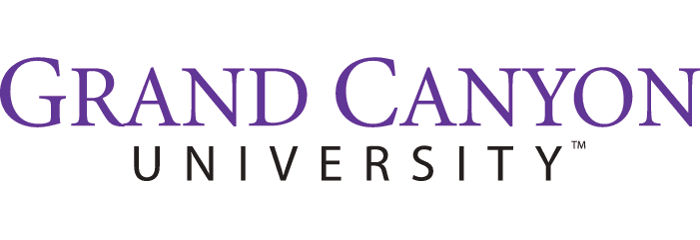
Grand Canyon University
2023 Best Online Human Resources Master's Degrees
| Rank | School | Salary Score | Median Starting Salary |
|---|---|---|---|
| Pepperdine University | $92,220 | ||
| Texas A&M University - College Station | 97 | $90,261 | |
| University of Illinois Urbana - Champaign | 96 | $87,923 | |
| Villanova University | 93 | $84,583 | |
| Golden Gate University | 82 | $76,511 | |
| Northern Kentucky University | 79 | $74,690 | |
| New York University | 79 | $74,617 | |
| Georgetown University | 78 | $73,972 | |
| Pennsylvania State University | 75 | $72,738 | |
| Catholic University of America | 74 | $72,088 |
2023 Online Colleges Offering Master's Degrees
Ranking Details
#1 Pepperdine University
- Salary Score: 98
- Median Starting Salary: $92,220
- Locations: Malibu (CA)
- Accreditation: WSCUC
Pepperdine University is a private school that offers an online Master of Science in Human Resources with 30 required credit hours of courses. This degree can take as little as 16 months with a full-time schedule.
Pepperdine's digital learning system is called Courses, which is the platform where online students review and complete coursework. The curriculum emphasizes the strategic nature of human resources and how it should factor into employer decisions. Some core classes include Organizational Behavior, Leadership, and Culture and Fundamentals of the American Legal System and Employment Law. Alumni of this program might enter careers as human resource specialists or managers, compensation and benefits managers, or training and development managers.
#2 Texas A&M University - College Station
- Salary Score: 97
- Median Starting Salary: $90,261
- Locations: College Station (TX)
- Accreditation: SACS COC
Texas A&M University (TAMU) is a public university that offers an online, 37-credit Master of Science in Educational Human Resource Development. This degree is designed to take two years with a full-time schedule. Despite the word "Educational" in the degree name, this is a general program suitable for students who want to work in any industry.
TAMU uses the Canvas learning platform to deliver courses to online students. Master's degree faculty seek to teach students a mix of human resource theory and practical application through lessons on organizational change, motivational psychology, and employee evaluation. Each degree begins with the course Applied Theoretical Foundations in Human Resource Development and ends with a seminar during which students compile a professional portfolio.
#3 University of Illinois Urbana - Champaign
- Salary Score: 96
- Median Starting Salary: $87,923
- Locations: Champaign (IL)
- Accreditation: HLC
The University of Illinois Urbana - Champaign (UIUC) is a public school with two online master's degrees in HR: a Master of Education (MEd) in Human Resource Development and a Master of Human Resources and Industrial Relations (MHRIR). The MEd contains 32 credit hours and is designed for students who want to work in education after they graduate. The MS contains 48 credit hours and is intended for working professionals in any industry who want to study part time.
UIUC uses several learning management systems, including Canvas, to deliver both synchronous and asynchronous online classes. MEd faculty cover the foundations of educational policy, organization, and psychology, while MHRIR professors spend more time on HR fundamentals such as government regulations and compensation systems.
#4 Villanova University
- Salary Score: 93
- Median Starting Salary: $84,583
- Locations: Villanova (PA)
- Accreditation: MSCHE
Villanova University, a private institution, offers an online Master of Science in Human Resource Development that may take full-time students two years to finish. This 36-credit-hour degree doesn't require candidates to have HR experience, but those who do may be able to skip the first-semester course Introduction to HR in the Business World.
Online learners at Villanova complete coursework in Blackboard, the school's digital learning platform. This degree covers a general HR curriculum through courses on human resource strategy, analytics, and technology. The required core includes Financial & Human Capital and Organization Development, while electives include Total Rewards - Benefits and Diversity in a Global Economy.
#5 Golden Gate University
- Salary Score: 82
- Median Starting Salary: $76,511
- Locations: San Francisco (CA)
- Accreditation: WSCUC
Golden Gate University (GGU) is a private institution offering two master's degrees in human resources. The Master of Science in Human Resources Management features a general HR education over 27 credit hours. The university's 45-credit Master of Business Administration has a possible concentration in human resources management for students who want to combine HR education with general business knowledge.
Online students sign into GGU's eLearning platform to view assignments and complete coursework. Both degrees feature hybrid options and a mix of synchronous and asynchronous classes. Despite their different goals, these programs share some of the same curricula, including courses such as Acquiring & Retaining Human Resources and Ethics in Managing People at Work.
Online Master's in Human Resources Overview
Human resources is the branch of an organization that oversees the inner workings of the organization and its employees. The role of a human resources professional encompasses many functions, including recruiting and hiring, orientation and training, compensation and benefits, workplace relations, and retention. Students who wish to pursue a graduate-level degree in HR have two options: an MBA with a concentration in human resources or a master’s of science degree in human resource management. The curriculum for the two degrees may appear to have some overlap, but the MBA will be more generalized in terms of business applications while the MS-HRM will focus fairly narrowly on HR examples, situations, and areas of specialization.
Many master’s programs prepare students to become HR generalists, but some programs require students to focus on a particular aspect of HR, such as diversity and inclusion, benefits and compensation, international HR management, or human capital management.
Most online master's in human resources programs can be completed in one to two years. Students enrolled on a part-time basis may take up to five years to complete their degree. The exact time for completion will depend upon a variety of factors, including the program format, the course load, and whether any credits were transferred into the program.
Requirements
Admission into an online master's in human resources program requires a bachelor's degree from an accredited institution. Students applying to an MBA program with a human resources specialization may need a bachelor's degree in business or a related field. Beyond this, criteria will vary by school but may include a minimum GPA, professional experience, letters of recommendation, a statement of purpose, and GRE/GMAT scores. While some programs will request scores, there are online master's in human resources that require no GRE or GMAT scores for admission.
Curriculum
The core of an online master's in human resources program includes advanced courses in human resources and business strategy. General graduate-level business courses will include statistics, performance management, finance, and leadership. Master's in human resources students will also take classes that examine HR topics such as staffing, compensation and benefits, workplace ethics, labor management relations, labor law and procedure, communications and interpersonal relations, organizational leadership, and training.
Many programs also require an internship or a capstone course. The capstone course involves working on a research project to address a human resources problem.
How to Choose an Online Master's in Human Resources Program
When evaluating online master’s in human resources degree programs, students should consider which structure works best for them. Program options include part-time, full-time, fully online, and hybrid programs that incorporate both online and on-campus learning. They should also think about whether their schedule allows for synchronous classes— which must be attended at a designated time—as opposed to asynchronous classes that they can access at their convenience.
Another factor to consider when choosing an online master's in human resources is whether the program offers any concentrations or unique features, such as graduate assistantships, field experiences, or internships. If students are interested in pursuing SHRM certification, choosing a program that is aligned to the SHRM’s curriculum guidelines may also be beneficial.
After evaluating the programs on these criteria, assessing each school's reviews, faculty credentials, and graduation rates can help determine which program will best fit their needs and career goals.
How to Finance an Online Master’s in Human Resources Degree
Students seeking financial aid for their online master’s in human resources degree have several options. Completing a FAFSA application will help students determine which federal student loans and grants may be available to them. Students should also contact their school's financial aid department to determine whether they qualify for any aid offered through their office. Scholarship opportunities may also be available through industry organizations, such as the SHRM, The National Public Employer Labor Relations Association (National PELRA), or through private companies.
Accreditation
Colleges can earn national or regional accreditation by allowing an independent organization to review their curricula, faculty, and services. Regional accreditors review colleges that primarily offer academic degrees, while national accreditors tend to evaluate trade or faith-based schools. For these reasons, regionally accredited colleges typically don't accept credits from nationally accredited schools. However, schools with either type of accreditation can accept federal financial aid, often an important consideration for master's students.
In many fields, individual programs can earn programmatic accreditation. However, the situation in HR is more complicated. There's no recognized program accreditor, but the Society for Human Resource Management (SHRM) has created a checklist of recommended curriculum items for HR programs. Many program directors choose to align their curricula with the SHRM's recommendations. It's not necessary to attend an SHRM-aligned program to work in HR, but it may add extra authority to a student's qualifications. In addition, graduating from one of these programs automatically ticks one of the eligibility boxes for SHRM certification.
What Are the Different Specializations in Human Resources?
Human resources generalists are typically trained to handle all aspects of HR, from identifying the employers’ needs to recruiting and selecting candidates, and from monitoring employee benefits to administering the company payroll. However, it is also possible for HR professionals to specialize in particular aspects of the field, becoming experts in specific areas:
Recruitment: After identifying the organization’s employment needs and developing job descriptions for all of the various roles, a recruitment specialist will find, screen, and interview viable candidates on an ongoing basis. Recruitment specialists often use job postings to recruit potential candidates, but they may also travel to college campuses and job fairs to find and interview candidates. Other tasks related to this role include testing applicants, conducting background checks, and negotiating job offers. Some recruitment specialists may also be responsible for introducing new employees to the organization, a process typically known as “onboarding.”
Compensation and Benefits: Particularly in larger organizations, employee compensation and benefits programs are extensive and complex, which is why they often require specialists in these areas. These professionals are responsible for developing and overseeing an organization’s employment policies and benefits, which generally includes salaries, other forms of compensation, paid time off, 401K or pension programs, and all types of insurance packages. Some organizations are particularly concerned about their employees’ health and welfare, so compensation and benefits specialists may also be called upon to monitor occupational safety and health standards and practices, as well as premium benefits offered to employees, such as food service, recreational activities, childcare and elder-care programs, and counseling services.
Training and Development: HR professionals who particularly enjoy teaching and assisting others in their professional growth may be interested in specializing in training and development. This can translate into working with managers and employee supervisors to develop performance improvement measures, conduct orientation sessions, and arrange on-the-job training, and it can also mean working directly with employees to help them improve and maintain their job skills. Organizations known to invest in their employees’ development often attract more ambitious and motivated employees.
HR Information Systems Management: As in so many other areas of business, organizations are increasingly relying on sophisticated and complex information systems to manage their HR departments. Therefore, there is a need for specialists who have a passion for IT while also understanding the intricacies of HR departments. HRIS analysts typically only need an associate or bachelor’s degree, but to move into management positions, a master’s degree may be required.
Do I Need a Certification for Advancement in the Field of Human Resources?
Graduates of an online master’s in human resources program can pursue additional certifications as an HR professional. These certifications are often a requirement of higher-level human resources positions and can elevate one's earning potential. Some of the most recognized certifications include:
SHRM-CP Certification: This certification demonstrates a superior level of knowledge and skills among early- to mid-career HR professionals. Earning this designation is considered beneficial for HR professionals and their employers.
SHRM-SCP: This senior-level HR certification designates credential holders as experts in the human resources field. The certification is applicable to companies all over the world and in many industries.
Certified Employee Benefit Specialist (CEBS): Those who want to specialize in employee benefits can achieve this designation, which confirms that professionals have been trained to guide all facets of an organization’s benefits strategy.
Professional in Human Resources (PHR): This designation, offered through the HR Certification Institute, helps human resources professionals master the technical and operational aspects of HR management.
Frequently Asked Questions for Online Master's in Human Resources Degrees
What can you do with an online master's degree in human resources?
In addition to gaining an in-depth knowledge of the HR field, graduates of a master’s in human resources program will have developed important skills in areas such as research, communication, and leadership. Depending upon their education and experience, they may be prepared for positions in HR management, compensation and benefits management, or training and development management. Most HR managers will work in office environments, although recruitment specialists may have the opportunity to travel to job fairs and college campuses to meet potential candidates.
The advanced skill set acquired through an online master’s in human resources program is useful beyond the realm of HR. Human resources professionals may be well suited for jobs in consulting, corporate training, social and community service management, administrative service management, and many other areas.
How much can I earn with an online master's in human resources?
According to the Bureau of Labor Statistics, the median annual salary for human resources specialists is $63,490. However, HR professionals with more education and more experience can work their way up to management positions. For instance, HR managers — just one of several occupations open to graduates of human resources programs — have a median annual salary of $121,220; others, such as compensation and benefits managers, can make $125,130 per year. Employment in the area of personnel coordinations and management is projected to increase at a rate of approximately 10% through 2030. While competition for these jobs is predicted to be strong, those with a master's degree may have increased prospects.
What is the difference between an MBA with a specialization in HR and an MS-HRM?
According to members of the Society of Human Resource Management, there is some overlap between the two degrees available to graduate students interested in HR—the MBA with a specialization in HR and the master’s of HR management—but they are quite different. Students who are seeking a broader perspective on business in general will probably prefer the MBA program with a concentration in HR. The majority of courses for this degree are advanced business courses, such as management, statistics, finance, accounting, MIS, and marketing. These will be accompanied by three or four elective courses in HR management to meet the requirements for the HR specialization. Students who are intent on pursuing a lifelong career in HR management, however, will probably benefit from the more narrow curriculum of an MS-HRM degree that focuses exclusively on HR management. In this type of program, students will do a deep dive into various aspects of the profession, such as compensation and benefits, international HR, labor relations, labor law, and so forth.
Can I get a doctorate in HR management?
Students who are interested in research and academia may want to consider pursuing a doctoral degree in human resources management. PhD candidates study advanced concepts in HR and conduct original research for their dissertations. They can go on to teach in academia, where they also will most likely continue to conduct research, or they may seek executive-level positions and apply research to solving problems in the field of HR management. Most doctorate programs take two or more years to complete.
Are there industry organizations for HR professionals that I could join?
Joining a professional human resources organization enables graduates to stay up-to-date on industry news and trends and extends their networking opportunities. The following are a few prominent human resources organizations for graduates to consider:
- Society for Human Resource Management (SHRM): SHRM is the largest professional network of HR professionals. It hosts local and global events and offers educational and professional tools to help members stay at the forefront of their profession.
- National Human Resources Association (NHRA): The NHRA focuses on HR professionals’ individual development and leadership skills, from their earliest days in entry-level positions through executive careers.
- Human Resources Professionals Association (HRPA): This is a regulatory association devoted to protecting the public’s interest by governing the ethics and competence of the HR profession.
- Academy of Human Resources Development: This organization aims to gather HR faculty, scholars, and researchers interested in studying human resources development through research.
- National Public Employer Labor Relations Association (National PELRA): This nonprofit organization provides professional development, networking, and advocacy services to public-sector HR and labor relations professionals.
Accreditation
Colleges can earn national or regional accreditation by allowing an independent organization to review their curricula, faculty, and services. Regional accreditors review colleges that primarily offer academic degrees, while national accreditors tend to evaluate trade or faith-based schools. For these reasons, regionally accredited colleges typically don't accept credits from nationally accredited schools. However, schools with either type of accreditation can accept federal financial aid, often an important consideration for master's students.
In many fields, individual programs can earn programmatic accreditation. However, the situation in HR is more complicated. There's no recognized program accreditor, but the Society for Human Resource Management (SHRM) has created a checklist of recommended curriculum items for HR programs. Many program directors choose to align their curricula with the SHRM's recommendations. It's not necessary to attend an SHRM-aligned program to work in HR, but it may add extra authority to a student's qualifications. In addition, graduating from one of these programs automatically ticks one of the eligibility boxes for SHRM certification.
What Are the Different Specializations in Human Resources?
Human resources generalists are typically trained to handle all aspects of HR, from identifying the employers’ needs to recruiting and selecting candidates, and from monitoring employee benefits to administering the company payroll. However, it is also possible for HR professionals to specialize in particular aspects of the field, becoming experts in specific areas:
Recruitment: After identifying the organization’s employment needs and developing job descriptions for all of the various roles, a recruitment specialist will find, screen, and interview viable candidates on an ongoing basis. Recruitment specialists often use job postings to recruit potential candidates, but they may also travel to college campuses and job fairs to find and interview candidates. Other tasks related to this role include testing applicants, conducting background checks, and negotiating job offers. Some recruitment specialists may also be responsible for introducing new employees to the organization, a process typically known as “onboarding.”
Compensation and Benefits: Particularly in larger organizations, employee compensation and benefits programs are extensive and complex, which is why they often require specialists in these areas. These professionals are responsible for developing and overseeing an organization’s employment policies and benefits, which generally includes salaries, other forms of compensation, paid time off, 401K or pension programs, and all types of insurance packages. Some organizations are particularly concerned about their employees’ health and welfare, so compensation and benefits specialists may also be called upon to monitor occupational safety and health standards and practices, as well as premium benefits offered to employees, such as food service, recreational activities, childcare and elder-care programs, and counseling services.
Training and Development: HR professionals who particularly enjoy teaching and assisting others in their professional growth may be interested in specializing in training and development. This can translate into working with managers and employee supervisors to develop performance improvement measures, conduct orientation sessions, and arrange on-the-job training, and it can also mean working directly with employees to help them improve and maintain their job skills. Organizations known to invest in their employees’ development often attract more ambitious and motivated employees.
HR Information Systems Management: As in so many other areas of business, organizations are increasingly relying on sophisticated and complex information systems to manage their HR departments. Therefore, there is a need for specialists who have a passion for IT while also understanding the intricacies of HR departments. HRIS analysts typically only need an associate or bachelor’s degree, but to move into management positions, a master’s degree may be required.
Do I Need a Certification for Advancement in the Field of Human Resources?
Graduates of an online master’s in human resources program can pursue additional certifications as an HR professional. These certifications are often a requirement of higher-level human resources positions and can elevate one's earning potential. Some of the most recognized certifications include:
SHRM-CP Certification: This certification demonstrates a superior level of knowledge and skills among early- to mid-career HR professionals. Earning this designation is considered beneficial for HR professionals and their employers.
SHRM-SCP: This senior-level HR certification designates credential holders as experts in the human resources field. The certification is applicable to companies all over the world and in many industries.
Certified Employee Benefit Specialist (CEBS): Those who want to specialize in employee benefits can achieve this designation, which confirms that professionals have been trained to guide all facets of an organization’s benefits strategy.
Professional in Human Resources (PHR): This designation, offered through the HR Certification Institute, helps human resources professionals master the technical and operational aspects of HR management.
Frequently Asked Questions for Online Master's in Human Resources Degrees
What can you do with an online master's degree in human resources?
In addition to gaining an in-depth knowledge of the HR field, graduates of a master’s in human resources program will have developed important skills in areas such as research, communication, and leadership. Depending upon their education and experience, they may be prepared for positions in HR management, compensation and benefits management, or training and development management. Most HR managers will work in office environments, although recruitment specialists may have the opportunity to travel to job fairs and college campuses to meet potential candidates.
The advanced skill set acquired through an online master’s in human resources program is useful beyond the realm of HR. Human resources professionals may be well suited for jobs in consulting, corporate training, social and community service management, administrative service management, and many other areas.
How much can I earn with an online master's in human resources?
According to the Bureau of Labor Statistics, the median annual salary for human resources specialists is $63,490. However, HR professionals with more education and more experience can work their way up to management positions. For instance, HR managers — just one of several occupations open to graduates of human resources programs — have a median annual salary of $121,220; others, such as compensation and benefits managers, can make $125,130 per year. Employment in the area of personnel coordinations and management is projected to increase at a rate of approximately 10% through 2030. While competition for these jobs is predicted to be strong, those with a master's degree may have increased prospects.
What is the difference between an MBA with a specialization in HR and an MS-HRM?
According to members of the Society of Human Resource Management, there is some overlap between the two degrees available to graduate students interested in HR—the MBA with a specialization in HR and the master’s of HR management—but they are quite different. Students who are seeking a broader perspective on business in general will probably prefer the MBA program with a concentration in HR. The majority of courses for this degree are advanced business courses, such as management, statistics, finance, accounting, MIS, and marketing. These will be accompanied by three or four elective courses in HR management to meet the requirements for the HR specialization. Students who are intent on pursuing a lifelong career in HR management, however, will probably benefit from the more narrow curriculum of an MS-HRM degree that focuses exclusively on HR management. In this type of program, students will do a deep dive into various aspects of the profession, such as compensation and benefits, international HR, labor relations, labor law, and so forth.
Can I get a doctorate in HR management?
Students who are interested in research and academia may want to consider pursuing a doctoral degree in human resources management. PhD candidates study advanced concepts in HR and conduct original research for their dissertations. They can go on to teach in academia, where they also will most likely continue to conduct research, or they may seek executive-level positions and apply research to solving problems in the field of HR management. Most doctorate programs take two or more years to complete.
Are there industry organizations for HR professionals that I could join?
Joining a professional human resources organization enables graduates to stay up-to-date on industry news and trends and extends their networking opportunities. The following are a few prominent human resources organizations for graduates to consider:
- Society for Human Resource Management (SHRM): SHRM is the largest professional network of HR professionals. It hosts local and global events and offers educational and professional tools to help members stay at the forefront of their profession.
- National Human Resources Association (NHRA): The NHRA focuses on HR professionals’ individual development and leadership skills, from their earliest days in entry-level positions through executive careers.
- Human Resources Professionals Association (HRPA): This is a regulatory association devoted to protecting the public’s interest by governing the ethics and competence of the HR profession.
- Academy of Human Resources Development: This organization aims to gather HR faculty, scholars, and researchers interested in studying human resources development through research.
- National Public Employer Labor Relations Association (National PELRA): This nonprofit organization provides professional development, networking, and advocacy services to public-sector HR and labor relations professionals.
Why Trust Us?
27 Data Researchers
60,000 Degrees Researched Annually
20,000 Hours Spent on Research Annually
Launching Rankings Since 2009
Related Articles
2023 Best Online Master's in Business Management Degrees
Discover the best online master's in business management degrees and learn about the program types, curriculum, and potential careers for MBA graduates.
By OnlineU Staff Writers | 2/6/2023


